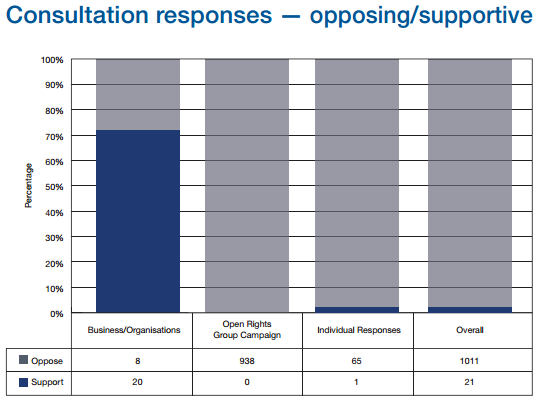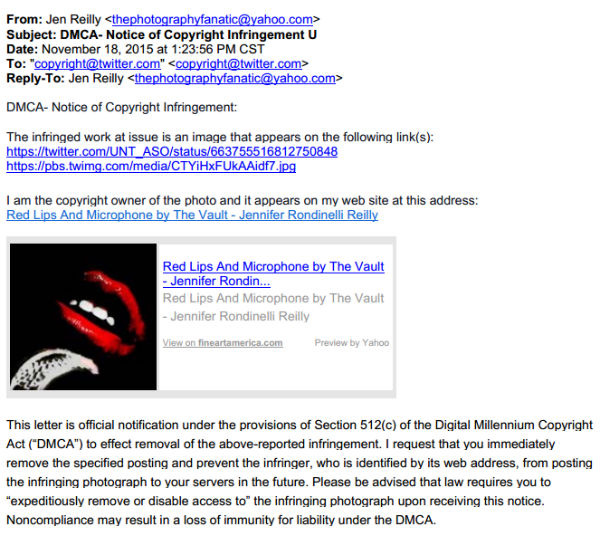Public Rejects 10 Year Prison Term for Online Piracy
jeudi 14 janvier 2016 à 10:17 Last year the UK Government announced a plan to increase the maximum prison sentence for online copyright infringement to ten years.
Last year the UK Government announced a plan to increase the maximum prison sentence for online copyright infringement to ten years.
The current maximum of two years is not enough to deter infringers, lawmakers argued.
The plan followed a recommendation put forward in a study commissioned by the UK Intellectual Property Office (IPO) a few months earlier.
This study concluded that the criminal sanctions for copyright infringement available under the Copyright, Designs and Patents Act 1988 (CDPA 1988) could be amended to bring them into line with related offenses, such as counterfeiting.
Before implementing the changes the Government launched a public consultation, asking for comments and advice from the public. This generated a lot of responses and this week the results were published by the IPO.
In total there were 1,032 responses to the consultation, and an overwhelming majority of 98 percent oppose the increased prison term.
There were only 21 responses supporting the plan, which all except one came from organizations. A total of 1,011 individuals came out in opposition, most of which used a submission form made available by the Open Rights Group (ORG).

The Government has released a summary of the findings (pdf) presenting the primary arguments from both sides. The opponents argue that prison term extension is not acceptable because the punishment would be too harsh.
“10 years is too high; copyright infringement is not a serious crime,” IPO summarizes.
In addition, due to the vague language employed, opponents are worried that the changes could lead to prison sentences for naive file-sharers who have no real criminal intent.
“The term ‘affect prejudicially’ is too vague and could mean someone facing a criminal charge where only a minimal amount of content has been infringed. This requires some threshold to ensure only commercial scale infringers are punished.”
The supporters of the prison term extension, including industry groups BPI, FACT and the MPA, argue that harsher sentences would help to serve as a deterrent, preventing people from pirating copyrighted works.
“Change would act as a powerful deterrent to those engaging in IP crime,” IPO summarizes.
According to the opponents there is no reason why online piracy should be treated differently than physical counterfeiting.
“It is important that creativity is respected and rewarded, and those who deliberately infringe or facilitate infringement should face criminal sanctions. Copyright infringement online is no less serious than that of physical, and therefore shouldn’t be treated any differently.”
The UK Government has not made any decisions yet on how to move forward but IPO notes that it will conduct an in-depth analysis of all the points raised. Any future legislation should take into account the public responses.
“This proposal has clearly struck a chord with many stakeholders, which is reflected in the high number of responses. As a result, the Government is now carefully considering the best way forward,” IPO notes.
“However, the Government remains committed to tackling those engaged in online criminality,” it adds.
The comments appear to suggest that a 10-year prison term may have been averted for now, but some sort of change to the current law is expected to come sooner or later.
Source: TorrentFreak, for the latest info on copyright, file-sharing, torrent sites and ANONYMOUS VPN services.
 In common with many other user-generated sites, Twitter is used by some of its members to host or link to copyright infringing material.
In common with many other user-generated sites, Twitter is used by some of its members to host or link to copyright infringing material.

 In the final days leading up to Christmas, DVD screener copies of some of the hottest movies
In the final days leading up to Christmas, DVD screener copies of some of the hottest movies  Piracy monetization firm Rightscorp has often been criticized for its aggressive attempts to obtain settlements from allegedly pirating Internet users.
Piracy monetization firm Rightscorp has often been criticized for its aggressive attempts to obtain settlements from allegedly pirating Internet users. On December 9, 2014, the file-sharing world
On December 9, 2014, the file-sharing world